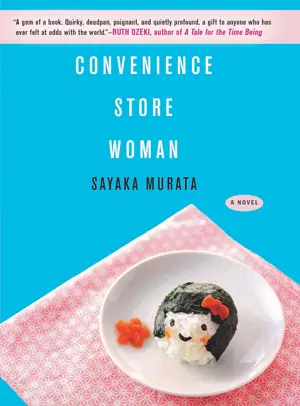Convenience Store Woman

Keiko feels a deep sense of belonging and identity within the structured and predictable environment of the convenience store. She has dedicated herself to following the store's rules and mimicking the behavior of her co-workers. She strives to be a "normal" person in society's eyes.
However, Keiko's unconventional lifestyle and lack of ambition for career advancement and romantic relationships make her an outsider. Both in the eyes of her family and society. They constantly pressure her to conform and change her ways.
Keiko develops a friendship with a similarly unconventional man named Shiraha, who is also struggling to fit into societal expectations. Together, they form a peculiar bond that challenges the notion of what it means to be "normal." Their relationship questions the societal pressures to conform.
Convenience Store Woman explores themes of societal conformity, individuality. The novel offers a critique of social norms and the pressure to conform to societal expectations.
Simplicity and precision characterize Murata's writing style, which reflects Keiko's worldview. A unique perspective on societal norms and provides insight into the life of those who choose life outside them.